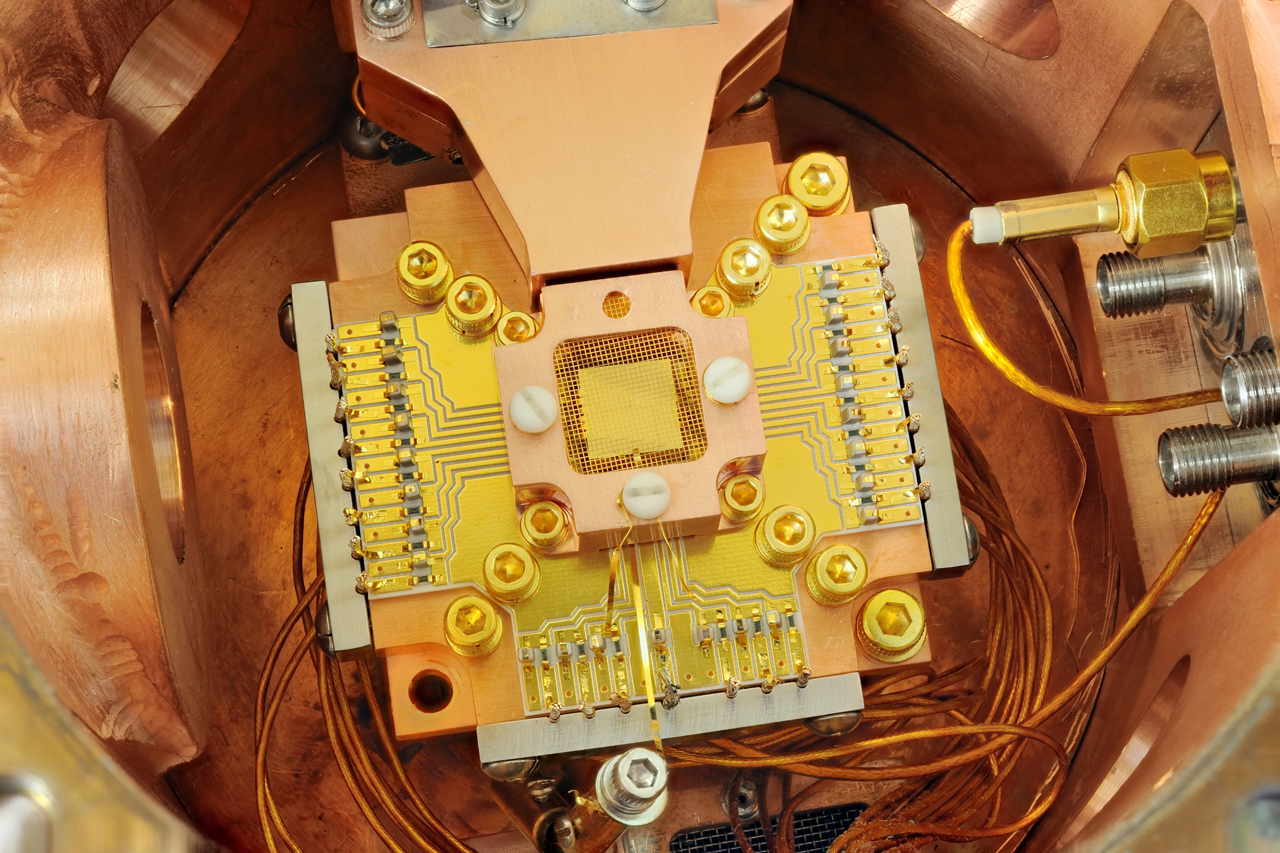- The supremacy of the quantum computer arrives
- The computer of the future arrives in Spain
'Quantum Supremacy' is a concept that seems taken from an Asimov novel, something that drives the engines of a spaceship beyond the limits of relativity, but in reality it is something much more mundane, not less impressive futuristic.
Last Tuesday, Google announced that it had reached that quantum supremacy in some tests, something that now clearly is what happened because they removed the original publication and have not said anything about it. The Financial Times was able to capture the publication before it was withdrawn.
It is something that Harmut Neven, director of engineering at Google, had already advanced last July in Moscow at ICQT, the largest meeting of quantum technology experts on the planet. And according to Neven, this could not have been achieved without a power calculation algorithm developed by a Spaniard, Benjamin Villalonga.
Villalonga and his team are responsible for 'a flexible performance simulator' that allows calculating and comparing the power of a quantum computer and a conventional computer, which has been essential to know what the former can do that they cannot do. seconds. Without its algorithm, quantum supremacy could not have been measured qualitatively and, therefore, it could not be known whether it was achieved or not.
Thanks to this, Google would have, for the first time, managed to solve a mathematical operation so complex that it is materially impossible for a non-quantum computer to solve it. What took its quantum team three minutes and 20 seconds, the most powerful supercomputer in the world, the IBM Summit and the US Department of Energy, would cost 10,000 years.
If this mathematical operation is so special, it is because it works within the principles of quantum mechanics, which contemplates the superposition of two states at the same time. If you remember the paradox of Schrödinger's cat, you will understand better: until the box is opened and it is checked if the cat is alive or dead, it will be alive and dead within quantum mechanics.
The consequences of having achieved quantum supremacy are still unclear, since the implementation of quantum equipment is very expensive and, on a day-to-day basis, does not contribute anything to a normal user over a conventional equipment.
Experts in the field estimate that the quantum computing industry "could have a potential market of more than 50,000 million euros," said Paul Bunyk, leader of D-Wave, the first company that sells quantum computers, to PIXEL.
Even the least optimistic, like Ruslan Yunusov, CEO of the Russian Quantum Center, considered last July that the race towards quantum supremacy was "like the new space race" and that, in economic terms, "whoever leads quantum technology will be owner of the future in every way. "
How quantum computing works
The computers we use to work today work with some or zeroes of the binary language, with a 'yes' or a 'no' that is transferred in bits. But in quantum computing, information is transmitted in another unit, qubits (quantum bits), which can be represented with those same ones and zeros, but also with any overlap of those two states. Thus, a quantum computer operates in qubits that can be a 'yes' or a 'no', but also with both at the same time, a 'yes and no'.
This way of 'thinking' of the machines seems to undermine the most basic logic ('if something is yes, it cannot be that no'), but a quantum computer can manage these calculations and the complexity involved. If a qubit can have two overlapping states (yes and no), two cubits could have four (yes and no, yes and yes, no and no, no and yes) and three cubits would continue to multiply this information exponentially.
Google has two quantum computers in its possession, one capable of operating in a system of 72 cubits and another that reaches 53 cubits, which is called Sycamore and which is what, according to the report obtained by FT, is with the that has achieved quantum supremacy. If Google used the 'less' powerful computer, it is because the greater the complexity of the equipment, the higher the error rate.
The errors of quantum computing are the reason why it has not yet been imposed on the conventional and that will make its adoption very slow. These errors are usually produced by the 'quantum decoherence', this the intervention of an external agent in the quantum state that transform it into a classic physical event. In other words, if Schrödinger's cat is alive and dead in the classical quantum theorem, the decoherence would be to open the box and run into the cat, dead or alive.
Once this quantum decoherence has been resolved, the feasibility of making this type of computer commercial could be evaluated. However, do not expect that in ten years you can go to a store and buy a quantum MacBook.
According to the criteria of The Trust Project
Know moreMobile Apple Scandal: this is the biggest hack in the history of the iPhone ... and Google has discovered
Technology Incognito mode does not protect you when you watch porn
Gadgets Light Phone II, the phone for those who don't want a phone

